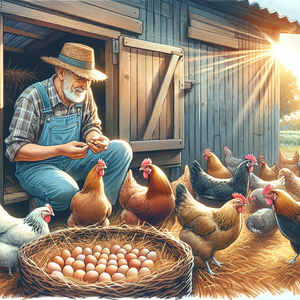Rivalry Redefined: The Significance of the Michigan vs. Ohio State Game

The Michigan-Ohio State rivalry began in 1897 when the two teams first faced off on the gridiron, marking the start of a fierce competition that would grow over the decades. Initially a local contest, it transformed into one of the most anticipated matchups in college football history. The rivalry intensified in the mid-1900s, particularly during the coaching tenures of Michigan's Bo Schembechler and Ohio State's Woody Hayes. Their legendary clashes in the 1970s solidified the game’s importance and set the stage for decades of competitive spirit. The historical context of this rivalry is steeped in regional pride. Michigan and Ohio have long been neighbors, but the competition between the two states extends beyond football. This rivalry symbolizes not just sportsmanship but also a clash of cultures, ideologies, and identities. Each year, the stakes are raised as the game influences championship standings and bowl game selections, making the outcome crucial for both teams.
Cultural Significance
The Michigan-Ohio State game transcends mere sports; it has become a cultural event that unites and divides communities. On game day, Ann Arbor and Columbus transform into battlegrounds of loyalty and pride. The atmosphere is electric, filled with fans donning their team's colors, engaging in friendly banter, and partaking in longstanding traditions. One of these traditions is the 'Script Ohio,' where Ohio State’s band performs a formation that has become iconic. In contrast, Michigan’s 'Victors' song resonates throughout Michigan Stadium, a testament to the rich history and tradition of the Wolverine program. These rituals not only celebrate the teams but also evoke a sense of belonging among fans, forging bonds that last a lifetime. Moreover, the rivalry has significantly influenced recruiting. Top high school athletes often choose to attend Michigan or Ohio State not just for the programs’ histories but for the chance to partake in this storied rivalry. The allure of playing in 'The Game' is a potent motivator, with players understanding the long-lasting implications of their performances in front of passionate crowds.
Impact on Players and Coaches
For players and coaches, the Michigan-Ohio State game represents the pinnacle of their college football experience. It’s in these matchups that legends are born. Players like Charles Woodson, Archie Griffin, and Desmond Howard became icons not just for their skills but for their memorable performances in this rivalry. Their legacies are often intertwined with the narratives of 'The Game,' highlighting the profound impact it has on individual careers. Coaches also feel the weight of the rivalry. The outcome of 'The Game' can define careers. A victory can immortalize a coach in the hearts of fans, while a loss can lead to scrutiny and pressure. Both programs invest significant resources into preparing for this game, and the results can have long-term implications for recruiting, funding, and overall program prestige. The pressure to win is palpable, and both fan bases expect nothing less than victory in this storied contest.
Broader College Football Landscape
The Michigan vs. Ohio State rivalry has played a critical role in shaping the landscape of college football as a whole. It has contributed to the growth of the Big Ten Conference and has been a driving force behind the popularity of college football nationally. The game often garners the highest television ratings of the season, showcasing its significance beyond just the teams involved. In recent years, the rivalry has seen increased prominence with the College Football Playoff system, where both teams often vie for playoff spots. Furthermore, the rivalry has inspired countless narratives in sports journalism, literature, and film, further elevating its status in American culture. Each season, 'The Game' serves as a cultural touchstone, drawing attention to the importance of tradition, competition, and the spirit of college athletics. The stories surrounding the game have become legendary, capturing the imaginations of fans and non-fans alike.
The Michigan vs. Ohio State rivalry is more than just a game; it is a celebration of history, culture, and passion. With deep roots that trace back over a century, this fierce competition continues to shape the identities of both programs and their fans. The stakes are always high, and the implications extend far beyond the football field, influencing the broader landscape of college football. As 'The Game' approaches each year, it serves as a reminder of the enduring power of rivalry in sports and the communal bonds it creates among players and fans alike. The fervor surrounding this rivalry ensures that it will remain a significant part of college football for generations to come.
Sports Marketing Manager
Collegiate athletic departments, sports marketing agencies, and event management companies
Core Responsibilities
Develop and implement marketing strategies to promote college football events, particularly high-stakes games like Michigan vs. Ohio State.
Analyze market trends and audience demographics to tailor campaigns that drive fan engagement and ticket sales.
Required Skills
Strong understanding of sports marketing and branding.
Proficiency in digital marketing tools and analytics.
Experience working with sponsorships and community outreach.
Sports Journalist/Reporter
Sports news outlets, local newspapers, and online sports platforms
Core Responsibilities
Cover college football events, focusing on key rivalries, player interviews, and game analyses.
Write articles and produce multimedia content that captures the excitement and cultural significance of games like Michigan vs. Ohio State.
Required Skills
Excellent writing and communication skills, with a knack for storytelling.
Ability to conduct interviews and research effectively.
Familiarity with sports analytics and statistics.
Athletic Program Coordinator
College athletic departments, sports event management firms, and nonprofit organizations focused on athletics
Core Responsibilities
Oversee the logistics and execution of athletic events, including game day operations for rivalries like Michigan vs. Ohio State.
Coordinate with various departments to ensure a seamless experience for players, coaches, and fans.
Required Skills
Strong organizational and project management skills.
Experience in event planning and knowledge of NCAA regulations.
Ability to work under pressure and handle high-stakes situations.
Sports Data Analyst
College football teams, sports analytics firms, and consulting agencies
Core Responsibilities
Analyze player and team performance data to provide insights for coaching staff, especially before high-profile matchups.
Create reports on game strategies, player statistics, and historical performance in rivalries.
Required Skills
Proficiency in statistical analysis software and data visualization tools.
Strong analytical thinking and problem-solving abilities.
Understanding of football tactics and player metrics.
Fan Engagement Specialist
College athletic departments, sports teams, and marketing firms specializing in sports
Core Responsibilities
Develop and implement strategies to enhance fan experience during college football games, particularly during rivalries.
Manage social media campaigns and interactive initiatives to boost attendance and community involvement.
Required Skills
Strong communication and interpersonal skills.
Experience with social media platforms and fan engagement tools.
Creative thinking for developing unique fan experiences and promotions.


